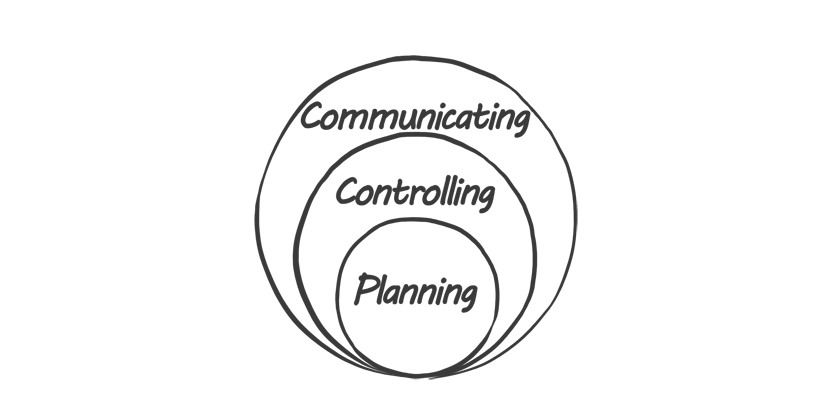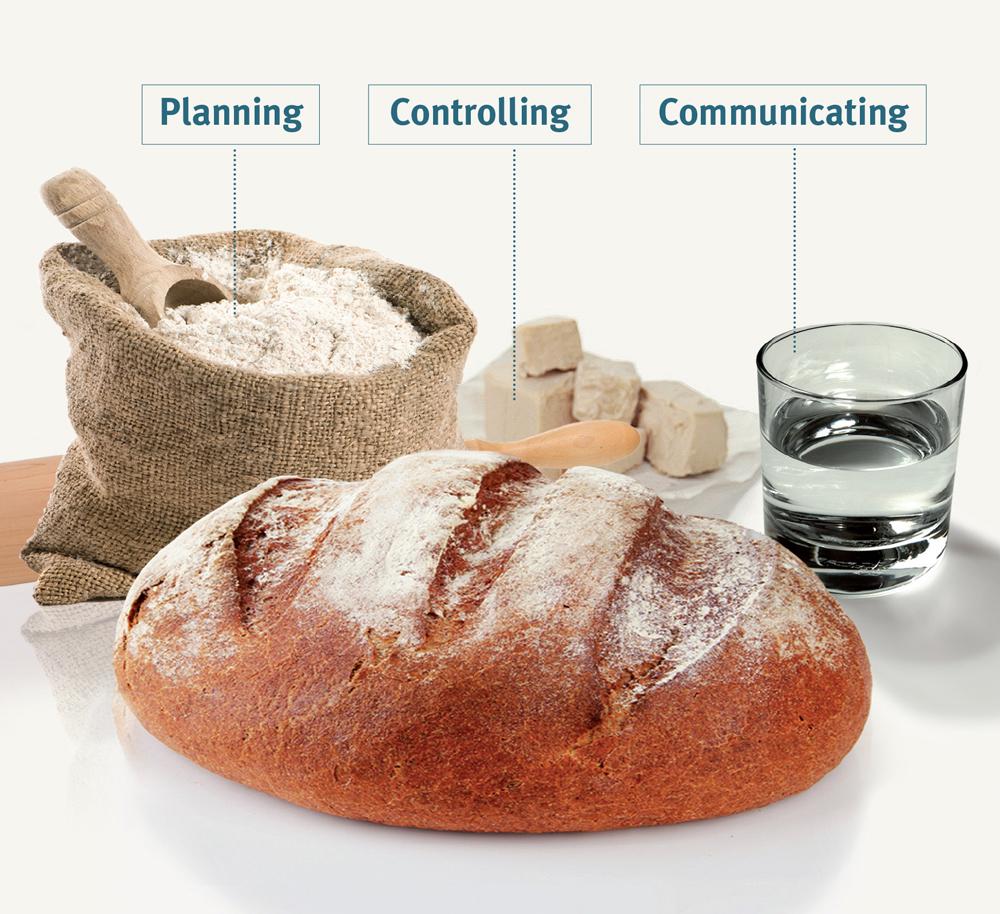
Project Management rests on three distinct pillars: planning, control and communication. These are the building blocks of the profession, and every single project, regardless of type of industry or specialization, depends on them.
If we use the process of baking bread as a metaphor for project management, then the bread represents the project’s end product, which is the combination of all its ingredients: flour is the basis; yeast is the means for leavening the dough and turning it into bread and water is the glue that bonds all the ingredients. The same applies in a project: planning is its basis; control provides the means needed to achieve the project’s objectives and communication bonds all the project’s stakeholders and expresses the project’s management tone and pace.
Bread without flour is not bread, just as a project without planning is not a project. Yeast-free bread is a flat cracker, just as a project without control is an effort going everywhere and nowhere at the same time. Bread without water is nothing but shapeless powder, just as a project without communication is simply a collection of individuals who aspire to reach a common goal but have nothing that links between them. Therefore, planning, control and communication are the indispensable ingredients needed to create the final product in the project effort.

All projects pose ongoing challenges. This is the case not only in our professional lives, but in our private lives, too. We are often required to manage all sorts of projects—small ones as well as large ones. Most of these projects tend to deviate—sometimes significantly so—from the planned budget, schedule, content and even goals. Some are canceled before bearing fruit; others simply fail outright.
The realm of project management can be divided into two domains: core competencies of the profession, which include project management methodologies and support tools; and the world of ‘soft’ management and communication skills, which comprises its own set of competencies and qualifications.
The project manager should be, first and foremost, a capable manager, a leader and a good communicator. In addition, ideally the project manager should be an expert in the project’s field and have plenty of practical experience in it, too. Finally, the project manager’s unique characteristics should suit the particular project he or she is called upon to manage.


